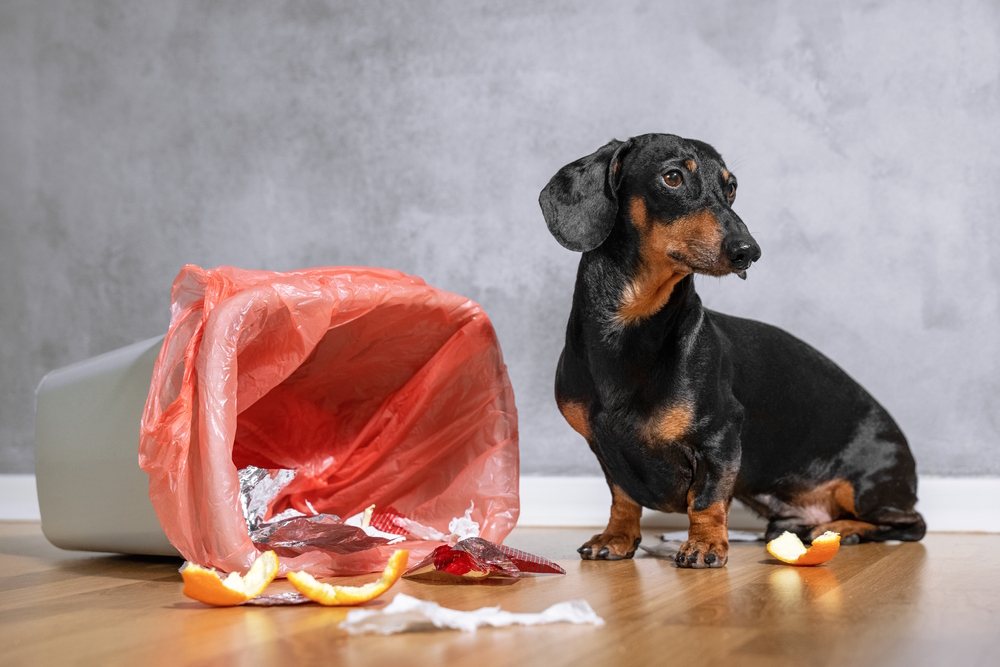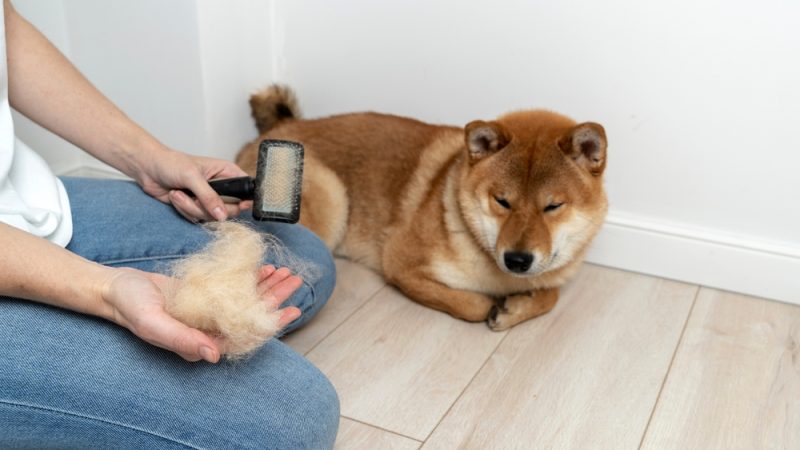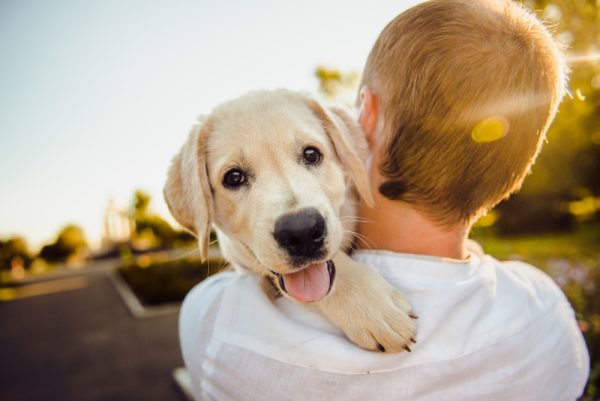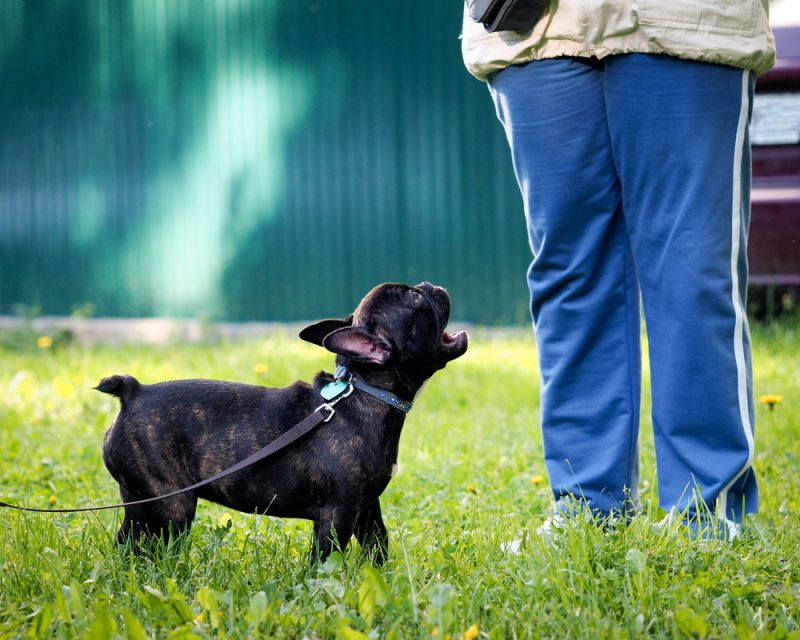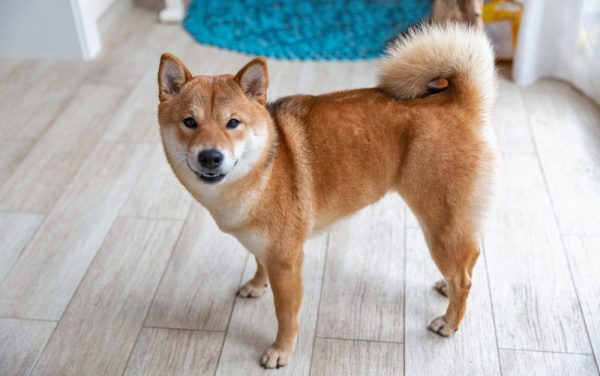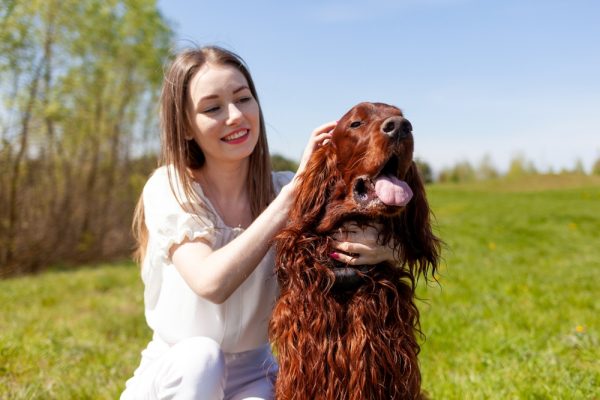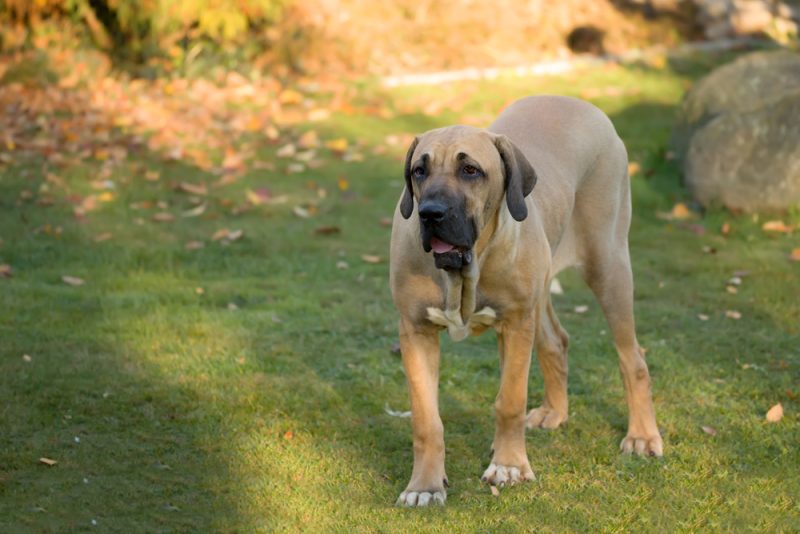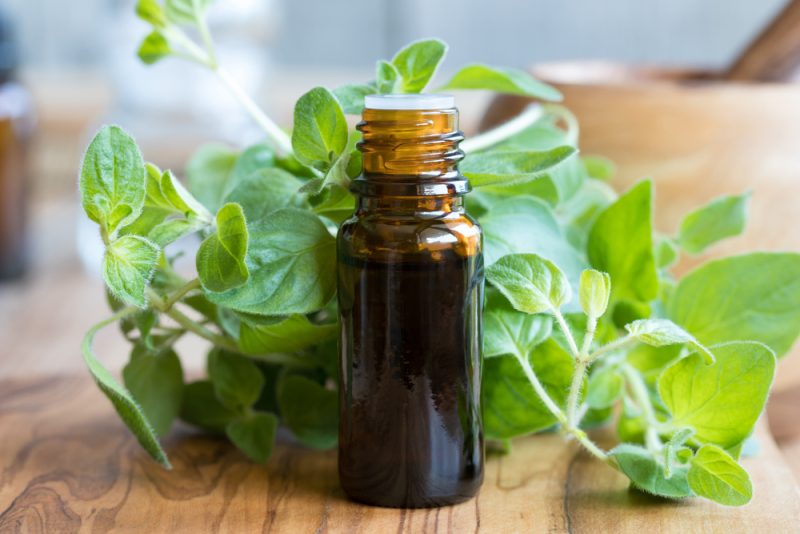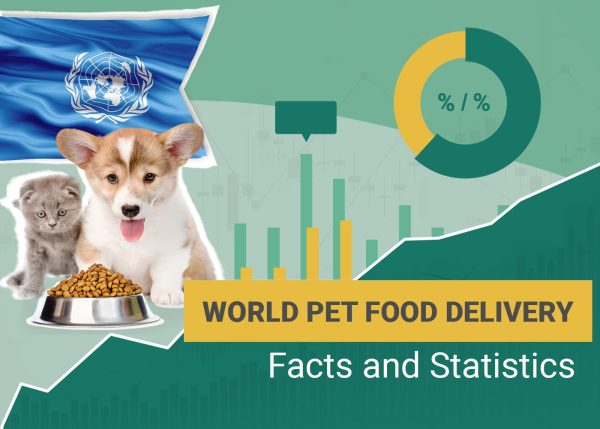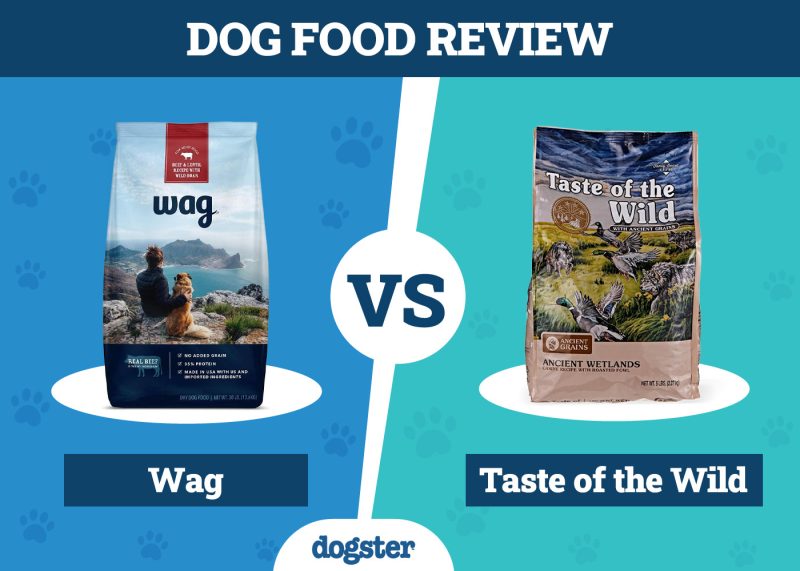You had a long day at work only to come home and find the kitchen trash can knocked over and quite a mess. Your dog got into the trash. Now they have diarrhea, their gut keeps gurgling, and your veterinarian isn’t available until tomorrow. Let’s look at dietary indiscretion, sometimes called garbage gut, and see what you can do.

What Is Garbage Gut?
Garbage gut is another name for “dietary indiscretion.” Your dog could have gotten into the trash or eaten something they shouldn’t have in the yard. Regardless of how it happened, your dog ate something that didn’t agree with them, and now they have gastrointestinal signs, such as vomiting and diarrhea.
Garbage gut can be minor, with a bout of diarrhea or flatulence before everything returns to normal. However, it can also lead to serious health complications, including pancreatitis or a foreign-body obstruction.

What Are the Signs of Garbage Gut or Dietary Indiscretion?
The main signs associated with garbage gut are GI signs. They can include one or more of the following.
- Vomiting
- Diarrhea
- Stomach rumbling sounds
- Increased flatulence or gas
- Pacing or posturing to reduce abdominal discomfort
- Inappetence
If the vomiting or diarrhea continues, your dog can quickly become dehydrated. It can also lead to metabolic and electrolyte imbalances. If the stool or vomitus is bloody, your dog could become anemic.
More severe conditions associated with dietary indiscretion include:
- Pancreatitis
- Foreign body obstruction
- Intestinal perforation
Be aware that your dog could also become exposed to toxic materials thrown away, such as rat bait, ant poison, and more. These toxins could cause neurologic signs such as seizures or tremors.
What Are the Causes of Garbage Gut or Dietary Indiscretion?
When your dog eats items it is not supposed to, it can get garbage gut. Often, thrown-out food starts to harbor pathogenic bacteria that can cause severe gastrointestinal distress. Old food can also harbor pathogenic fungal organisms that produce mycotoxins.
Dietary indiscretion is caused when your dog eats something that they should not. It’s important to realize that it’s not just stuff in the trash can, as the term “garbage gut” would imply. Other circumstances can also lead to similar clinical signs:
- Eating a dead animal found in the yard
- Getting fed raw food
- Chewing on items in the shed unsupervised
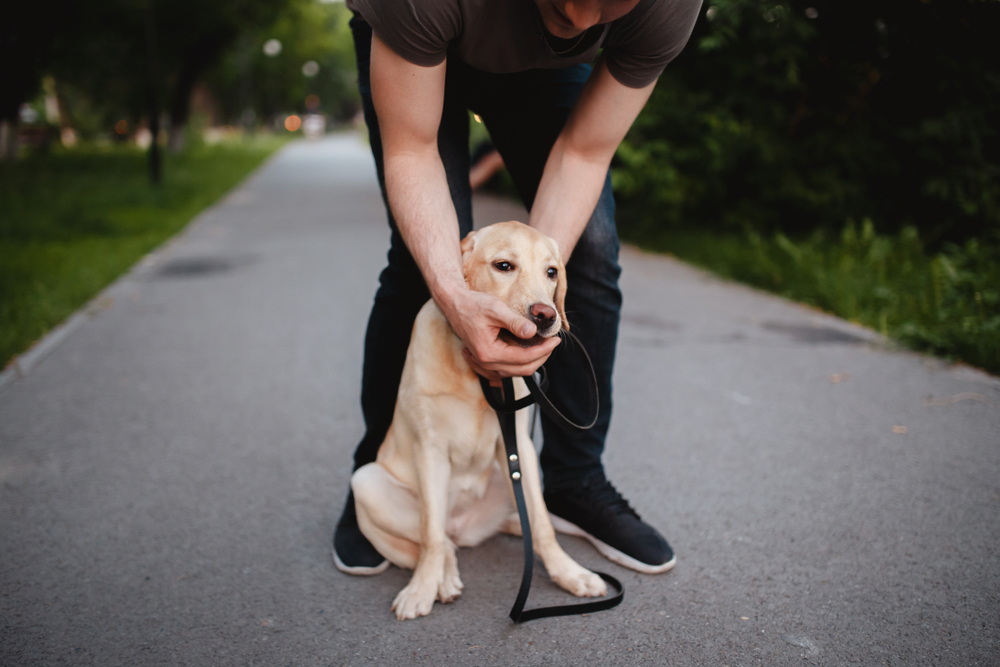
How Do I Care for a Dog With Garbage Gut or Dietary Indiscretion?
You’ll want to take your dog in for an exam with your veterinarian if they have GI signs. While many cases of dietary indiscretion are initially diagnosed based on the history you provide your veterinarian, there are still diagnostic tests your veterinarian will likely recommend, such as:
- Intestinal parasite fecal exams to rule out parasites
- Fecal smear to look for certain pathogenic bacteria in the gut
- CPL test to diagnose pancreatitis
- Complete blood cell count to evaluate certain blood cell characteristics that could suggest an infection, anemia, or dehydration
- Biochemistry panel to help assess various body organ systems, it includes liver enzyme values, kidney markers, proteins, and blood glucose levels
- Diagnostic imaging, such as radiographs (X-rays) or ultrasound, looks for obstruction, foreign bodies, inflammation, or other abnormalities
Treatment depends on the clinical signs your dog presents with. The mainstay of treating dietary indiscretion is using a bland, easy-to-digest diet. While foods like chicken and rice are bland, they’re not balanced for long-term feeding. Your veterinarian will likely suggest a prescription food, such as:
Other treatments depend on your dog:
- If something potentially toxic was eaten recently, your veterinarian might induce vomiting with apomorphine or Clevor.
- Activated charcoal may be given in certain cases of toxic ingestion.
- Dehydrated dogs will often need fluid therapy (IV or subcutaneous).
- Probiotics help balance the gut microbiome. Some, such as Pro-pectalin, also contain components like kaolin to help firm up stool.
- Anti-nausea medications, such as Cerenia (maropitant) or ondansetron, can be used.
- Stomach protectants to coat the esophageal and stomach linings is another treatment.
Your veterinarian may need to provide other supportive care if your dog consumes substances that cause neurologic signs, such as muscle relaxants or anticonvulsant medications.
If your dog has eaten a foreign body that is causing an obstruction or other potential trauma, your veterinarian may recommend exploratory surgery.
If you need to speak with a vet but can't get to one, head over to PangoVet. It's our online service where you can talk to a vet online and get the advice you need for your pet — all at an affordable price!
Frequently Asked Questions (FAQ)
How long does garbage gut last in dogs?
The effects of dietary indiscretion typically only last for a few days, especially if you get supportive care and a bland diet on board as needed. Some cases might even self-resolve in as little as a few hours. However, if your dog develops pancreatitis or another severe condition secondary to their inappropriate grazing, the effects could last for an extended period and may even recur.
How can you prevent garbage gut in dogs?
Preventing garbage gut can be tricky if you have a clever pup. To reduce the chances of your dog getting into your trash cans, secure them with lids. You could also consider putting them in a cabinet or pantry behind a closed door.
Avoid feeding your dog raw meat to reduce the risk of exposure to pathogenic bacteria. You should also supervise them outside, especially if they like to hunt.
You should also provide your dog with plenty of enrichment. Bored dogs are more likely to become destructive dogs, so use training aids, puzzle toys, and plenty of attention to keep your dog’s mind active.
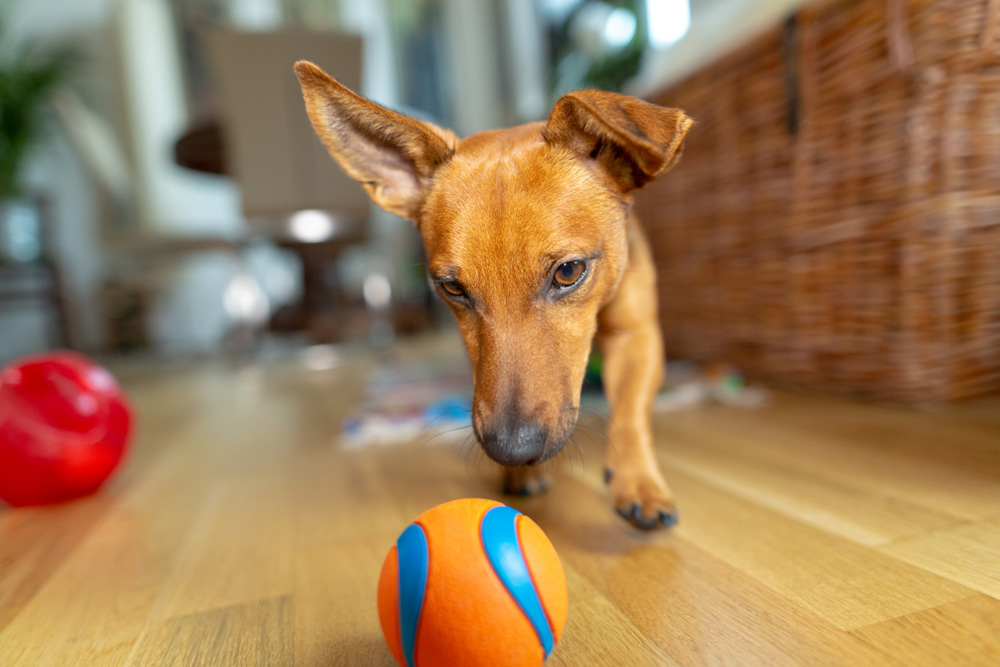

Conclusion
Garbage gut or dietary indiscretion is a common reason dogs have to be seen at the vet. This condition is largely preventable. If your dog does get sick, contact your veterinarian immediately to have them examined and treated.
Featured Image Credit: Masarik, Shutterstock
